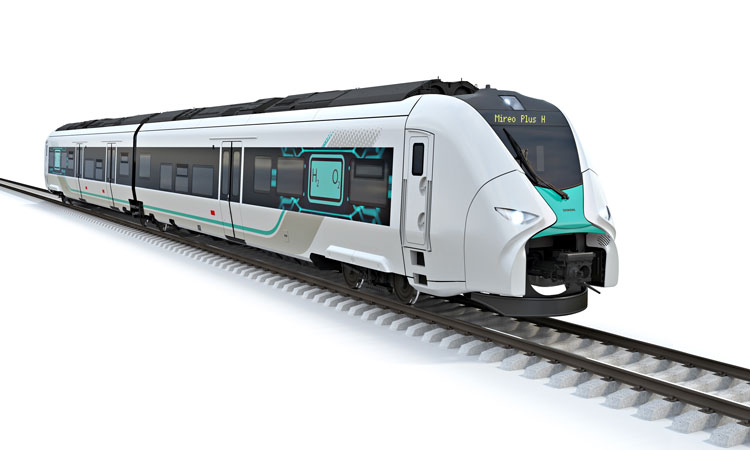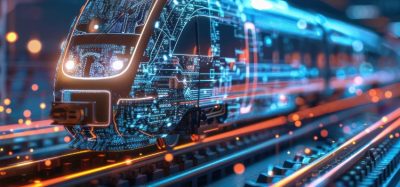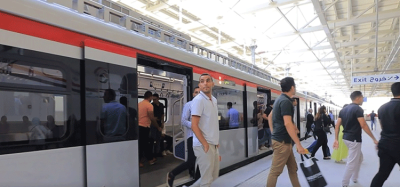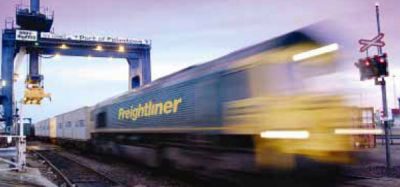Deutsche Bahn and Siemens Mobility to develop new hydrogen train
Posted: 25 November 2020 | Global Railway Review | No comments yet
Both companies will test a climate-friendly complete system consisting of the hydrogen train and its specially developed infrastructure.


Credit: Siemens Mobility
Deutsche Bahn (DB) and Siemens Mobility are testing the use of hydrogen for rail for the first time.
The joint H2goesRail project aims to test a completely new system consisting of a newly developed train and a newly designed filling station.
The new trains and infrastructure are intended to replace diesel powered trains operating on regional routes in Germany, significantly reducing CO2 emissions. A one year trial operation of the train is planned between Tübingen, Horb and Pforzheim, planned to take place in 2024. The hydrogen will be produced on site in Tübingen using traction electricity generated from renewable sources.
Join our free webinar: Rail cyber-security in a time of technological and regulatory transformation
Join our expert panel, including speakers from Nokia and Siemens Mobility, to explore the critical convergence of cybersecurity and 5G rail comms.
Date: 3 Dec | Time: 15:00 GMT
Can’t attend live? No worries – register to receive the recording post-event.
DB intends to re-fit its maintenance site in the city of Ulm for servicing the hydrogen powered train.
Siemens Mobility will build a prototype based on the Mireo Plus regional train, but equipped with a newly developed hydrogen drive. The designated Mireo Plus H will be as powerful as its electric counterpart, and have an operating range of up to 600km.
The new hydrogen drive will save around 330 tons of CO2 a year. DB currently operates around 1,300 diesel-powered trains in regional service, and roughly 40 per cent of DB’s 33,000km rail network is not electrified. As such, the use of hydrogen-powered trains, in addition to further electrifying the system, presents a great opportunity for DB to become climate-neutral.
DB Board Member for Digitalisation and Technology, Professor Sabina Jeschke, said: “This project proves that Deutsche Bahn is not just a mobility company, but a technology group as well. We need to bring our fossil fuel consumption down to zero. Only then can DB be climate-neutral by 2050.”
Michael Peter, CEO of Siemens Mobility, said: “Siemens Mobility and Deutsche Bahn will jointly develop the next generation of a hydrogen traction system – a complete system consisting of a hydrogen-powered train and infrastructure, including a new and innovative fueling station that can refuel the train in just 15 minutes. The train will have 1.7MW of traction power providing up to 1.1m/s² acceleration and a top speed of 160km/h. This innovative technology will make hydrogen-powered train operations faster, more efficient and more environmentally friendly.”
The state government of Baden-Württemberg has already given the project its support, while funding is expected to come from the Federal Ministry for Transport and Digital Infrastructure (BMVI).
OUT NOW: The Definitive Guide to Rail’s Digital Future
The rail industry is undergoing a digital revolution, and you need to be ready. We have released our latest market report, “Track Insight: Digitalisation.”
This is not just another report; it’s your comprehensive guide to understanding and leveraging the profound technological shifts reshaping our industry. We move beyond the buzzwords to show you the tangible realities of AI, IoT, and advanced data analytics in rail.
Discover how to:
- Optimise operations and maintenance with real-time insights.
- Enhance passenger services through seamless, high-speed connectivity.
- Leverage technologies like LEO satellites to improve safety and efficiency.
Featuring expert analysis from leaders at Nomad Digital, Lucchini RS, Bentley Systems and more, this is a must-read for any rail professional.
Related topics
Digitalisation, Hydrogen Trains, Infrastructure Developments, Rolling Stock Maintenance, Rolling Stock Orders/Developments, Sustainability/Decarbonisation
Related organisations
Deutsche Bahn AG (DB AG), Federal Ministry for Transport and Digital Infrastructure (BMVI), Siemens Mobility








